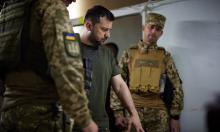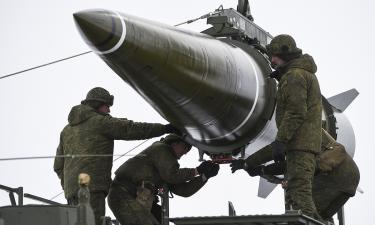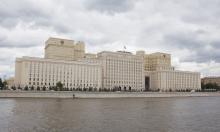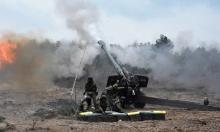New winds in Latin America
ALTAMIRO BORGES

In a change of scenario, in which the empire becomes vulnerable and the ideas of neo liberals lose their appeal, the struggles of the people of the world advance. The heroic Iraqi resistance in a region rich in oil, is today the Achilles' heel of the USA. As a result of imperialist violence, the whole Asian region has been set on fire. Another encouraging phenomenon is the growing commitment of youth in the struggle for a potentially different world.
This resistance movement, which gained larger organization from the World Social Forums (FSM) of Porto Alegre, is today a potential stone in the shoe of business corporations and of the capitalists. And there are also positive signs appearing of a resurging of the Trade Unions struggles, with the recent general strikes in France, Portugal, Greece and Italy against the regressions in social welfare and in labor rights.
A continent in trance
The uniqueness of this resistance, however, takes place in Latin America, which is not always noticed by the social fighters of Brazil perhaps because we still do not cultivate our Latin-American identity. In the last years, the continent suffered brusque alterations in the political area. For political scientist, José Luis Fiori, this change is unknown in the history of the region. From the laboratory of neo liberalism, it was converted into the vanguard of the struggle against its destructive effects.
The resistance advances quickly, using several forms of struggle. In a residual way, the experiences of guerrilla war still persist with emphasis on the Armed Revolutionary Force of Colombia (FARC), that dominates 40 % of the territory. It forms another struggle, one with insurrectional marks, it is that of the popular east, which already deposed eleven presidents in the region.
The biggest form of expression of this resistance, however, happens through the ballot box, with popular dissatisfaction resulting in the defeat of candidates committed to neo liberal ideas. Hugo Chávez, a rebellious soldier, inaugurated a series of victories of the left at the end of 1998; following a worker and trade unionist was elected in Brazil, Lula; a peasant leader and native in Bolivia, Evo Morales; an ex-guerrilla in Nicaragua, Daniel Ortega; a heterodox economist in Ecuador, Rafael Correa; besides René Preval in Haiti, Nestor and Cristina Kirchner in Argentina, Tabaré Vázquez in Uruguay and Michele Bachelet in Chile. Soon, a liberty theologian, Fernando Lugo, will be able to become President of Paraguay.
Paces and differentiated processes
Each of these countries, with its own peculiarities, carries out different experiences in confrontation with the serious crisis that devastated the region in the gloomy decades of neo liberalism. Some rulers adopt more daring postures, especially in the Andean nations Venezuela, Bolivia and Ecuador.
Others follow more moderate roads, avoiding confrontations, as in Brazil, Uruguay and Chile. In common, all the new governments, because of the fear of social pressure, try to distance themselves from the old dogmas of the neo liberals, paralyzing privatizations in strategic areas of the economy, coming back to strengthen the inductive role of the state, investing in social programs and reducing the impetus of the measures of the precarious members of the Labor Party.
As Chávez affirmed in the Social Worldwide Forum in Caracas, in 2006, the conduct of the new rulers reflects the correlation of forces of each country, it does not adopt a unique model and follows differentiated paces, but everyone looks to surpass the misfortunes of neo liberalism. Not to frustrate popular expectations and, to avoid the return of the conservative-liberal block, forces the governments’ need to advance in making changes. Life pushes for bigger and more daring radicalization; otherwise, history’s revenge can be brutal. The most exemplary case is in Venezuela, where the Bolivarian process acquires revolutionary outlines and it places as a challenge the construction of “socialism of the XXI century.”
Chávez challenges imperialist arrogance and attacks media dictatorship by not renewing the license of the tricky RCTV. His project of constitutional reform was temporarily defeated in the referendum that proposed the reduction of the working day to 36 hours per week, anti-landowning land reform and inclusion of the status of the informal worker. Already in Bolivia, Evo Morales nationalizes fields and refineries of oil and gas.
The courageous initiative is a landmark in the history of the country, the poorest of South America, and in spite of this, it has reserves estimated in 1.5 trillion cubic meters of gas, extracting 40 thousand barrels of oil in a day and producing 150 million cubic feet of gas yearly. From this sovereign gesture, part of the natural wealth now is destined for social programs to combat hunger, for electrification of rural areas and for increasing literacy.
Already Rafael Correa, in Ecuador, affirms that he will not pay the foreign debt with the hunger of the people, won with the election for the Constituent Assembly and he reaffirms his socialist convictions. In other countries, including Brazil, the process of change is more contained, which generates dissatisfaction in social movements and it arouses conservative sectors.
Effort of regional integration
Despite these differences of pace and conceptions, another factor unifies these several experiences: the effort for Latin-American integration. Each ruler, for pragmatic reasons or by conviction, has already realized that isolated, no country will be able to face the power of the "evil empire," which historically always treated the continent as the backyard of the USA. With this advanced understanding, important steps have been taken in the course of the creation of a regional block against hegemony.
Beyond strengthening the Mercosur (South American Common Market), that now supplants the phase of the commercial union and acquires political outlines, including the election of a parliament, the Unasul Project advances, which will integrate all of South America, and earns solidity for the proposal of the construction of the Alba (Bolivarian Alternative of the Americas).
Steps also are taken in the direction of the biggest synergy in the energy sector, as in the gas pipeline that will benefit all regions, in the creation of the South Bank, as an instrument to stimulate regional development, and even in the reinforcement of the TeleSul, as a counterpoint to the ideological offensive of the USA through its media.
Never before in the history of Latin America has the ancient dream of the liberator Simon Bolívar advanced so much in the realization of the construction of the “Big Homeland” to the despair of Yankee and European imperialism. It is certain that the integration is not an easy process. There are many asymmetries between the countries of the region. There are still political divergences, as before the occupation of Haiti by troops of the UNO, under command of Brazil. Already the nationalization of oil in Bolivia spiked the wrath of the Brazilian elite, which demanded breaking diplomatic relations and the sending of troops to the frontier. In spite of these difficulties, the new rulers know that integration is vital, otherwise the disintegration of the region will provide joy for the "evil empire."
Reaction of the empire and of the oligarchies
But these advancements, which confirm the most favorable setting in the struggle of the people, do not take place with impunity. The USA has powerful interests in this rich and strategic region and does not stand still in facing the changes. The empire continues to act in the commercial-economic, diplomatic-political, military and ideological fields.
It defeated the neocolonial proposal of the Area of Free Commerce of the Americas (ALCA), it tries to seduce and to attract countries and it was considering bilateral treaties of commerce (TLCs) to isolate rebellious nations. Even demoralized, it still invests in the destabilization of governments in the region, in a frustrated attempt to strike a blow against the Venezuelan government and now in the incentive to separatist initiatives of the middle class in Bolivia. In the military area, more than 850 consultants are maintained in the government of the narcoterrorist Álvaro Uribe, in Colombia, and one more base has been set up in Paraguay. Already in its ideological sphere, the USA retains control of more than 85% of the information that circulates in the region and counts on the support of the venal and servile media of these countries.
The local oligarchies do what they did centuries ago, controlling power and looting the riches in a subordinate partnership with imperialist groups, also trying to get themselves off the defensive. In the referendum of constitutional reform in Venezuela, they surpassed this division and, with the strong support of the USA, achieved an important political victory after suffering ten consecutive electoral defeats. In Bolivia, the racist elite organizes groups of mercenaries, promotes the destabilization of the market and preaches separatism, creating a climate of civil war to sabotage the new Constitution.
In Ecuador, it invested against the Constituent Assembly installed in November and it also advocates the division of the country. Even in the most moderate experiences, it tries to create obstacles to impede change. The recent defeat of the CPMF imposed a delay on financing social programs and the area of health, which proves the hatred of the middle class to the Lula Government's spending programme
Urgency of active internationalism
All these attacks of imperialism and of the associate oligarchies indicate that, in spite of advances, the project for change is still not consolidated in the region, be it in the socialist perspective or even the moderate road. Any tactical lapse can be fatal in defending the freedom of Latin America. In practice, the democratic and popular sectors of the continent are still in a phase of resistance, of accumulation of forces, in which it is a basic, daring and strong political intelligence unit.
The "evil empire" and the abounding elites still are mighty and the ideas of the neo liberals were not totally defeated. The project of overcoming neo liberalism and of the realization of strategic socialist objectives demands that the workers are protagonists of change to the unfair structures of the capitalist system. In this sense, the action of internationalist workers is even more currently in demand.
Besides other challenges, it is urgent to denounce the domination and exploitation plans of the imperialist nations, especially of the USA. It is necessary to join forces with all peoples in the struggle for sovereignty and to implement what today materializes in support to the heroic Cuban people, which has been the object of a 50 year long criminal economic blockade, and in active solidarity to the anti-imperialist experiences of Venezuela, Bolivia and Ecuador. The flag of peace, against imperialist wars, becomes more and more central. It is necessary also to reinforce all the initiatives that march in the direction of Latin-American integration, as the only method of opposing the purposes of the "evil empire."
Altamiro Borges is a journalist, member of the Central Committee of the PCdoB, publisher of the magazine Syndical Debates and author of the book “Venezuela: Originality and Daring” (Publisher Anita Garibaldi, 3rd publication).
Translated by Lisa Karpova
PRAVDA.Ru
Subscribe to Pravda.Ru Telegram channel, Facebook, RSS!





